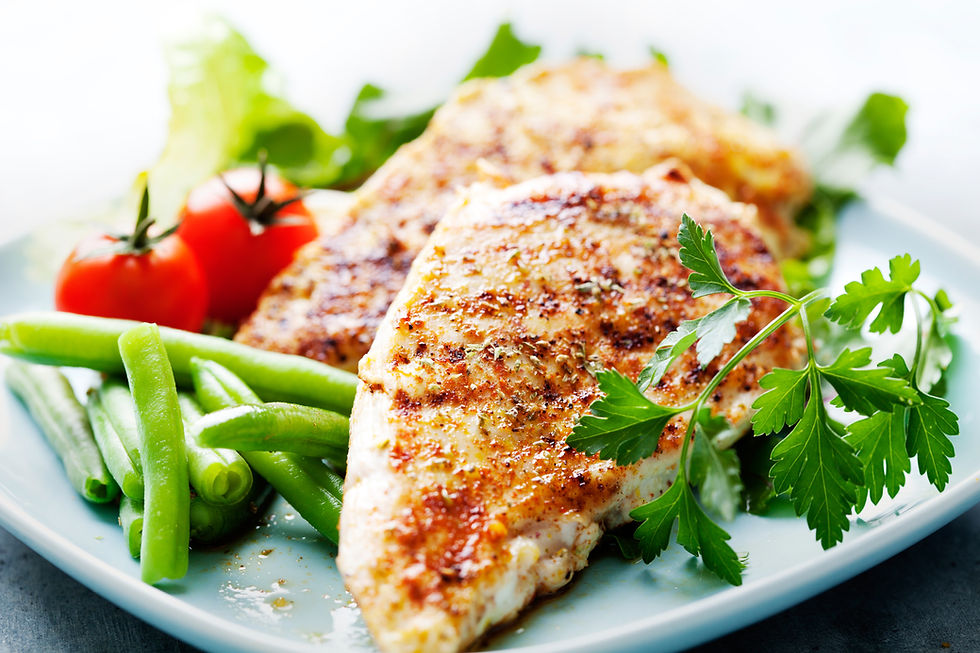Eating healthy when you're not feeling well
- mrm333
- Dec 6, 2016
- 3 min read

You’ve all been making great progress during your sessions these last few weeks leading up to Christmas!
A few of you have felt under the weather and have had some recovery time. But how do we stay on track even when you’re too poorly to exercise.
Your nutrition and eating makes up 80-90% of your success! If you’re not eating right then all the hours spent in the gym will do little towards your weight loss goals. But when you’re sick you don’t always fancy your healthier food do you. So what’s the best approach to eat your way back to health?
1. Protein Protein is crucial for building and repairing cells. Protein can help you maintain muscle mass. It also helps maintain fluid balance and therefore improves your body's ability to heal. Some of the best sources of protein are chicken, pork, lean beef, fish and lamb are all good. Eggs and cheese are also easily digestible forms of animal protein. Good non-animal sources of protein are beans, pulses, soya products such as tofu and nuts. Adding more peanut butter or almond butter to your diet is one easy way of getting more protein. If you just can't get enough protein from foods, your GP may recommend high-protein nutritional supplement drinks. You might also benefit from powdered protein that you can stir into any food. 2. Getting enough calories Many of us count calories, but when you’re poorly, the meaning of the phrase gets turned upside down. Instead of trying to reduce calories, you may actually need to increase them. This is because your body is working harder - but just when you need to eat more, your appetite is gone. Unintentional weight loss can become serious; it can leave you exhausted and weak. 3. Fibre When you're feeling sick, it's easy to forget about the fibre. You might be drawn to low-fibre comfort foods such as mashed potatoes. If you're feeling queasy, you might opt for white toast instead of granary bread. These diet changes - along with lower fluid intake and less exercise - can lead to constipation. The best sources are fruit, vegetables and whole grains. If your doctor or dietitian recommends them, you can consider taking a fibre supplement, too. 4. Supplements Vitamins and minerals are important for health; calcium, potassium and vitamins A, C, D and E are just a few of them. However, don't make the mistake of relying on supplements. Experts say you should concentrate on eating healthy foods when you're sick, rather than stocking up on pills and powders. Focus on whole grains, fruit and vegetables. By eating a wide array of these foods, you'll naturally get the vitamins, minerals and phytochemicals you need - and you won't have to worry about whether you're getting too little or too much of any specific nutrient. Always check with your GP or healthcare professional before starting supplements. 5. Health eating goes hand in hand with treatment Your ability to eat healthy depends on how you feel when you're sick. If your symptoms - such as pain or nausea - are overwhelming, you won't be able to eat well no matter how much you want to. In order to improve your appetite, you need to control your symptoms and side effects. Once you do, then you have a chance to eat better and maintain your strength and stamina.
See you soon
“The greatest wealth is health.”
Rosie












































Comments